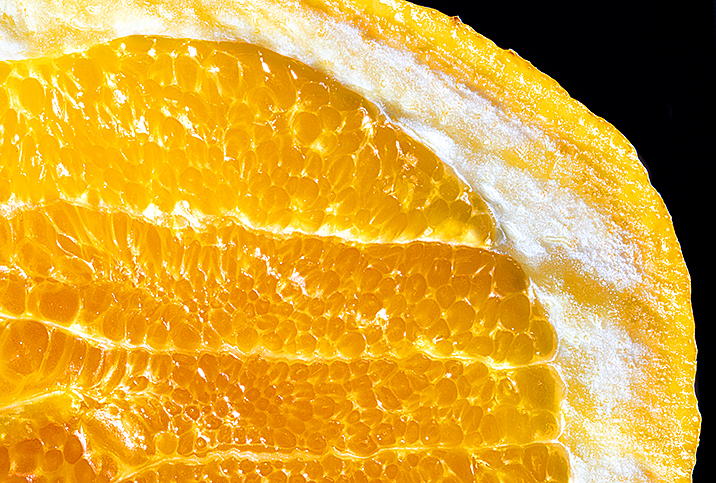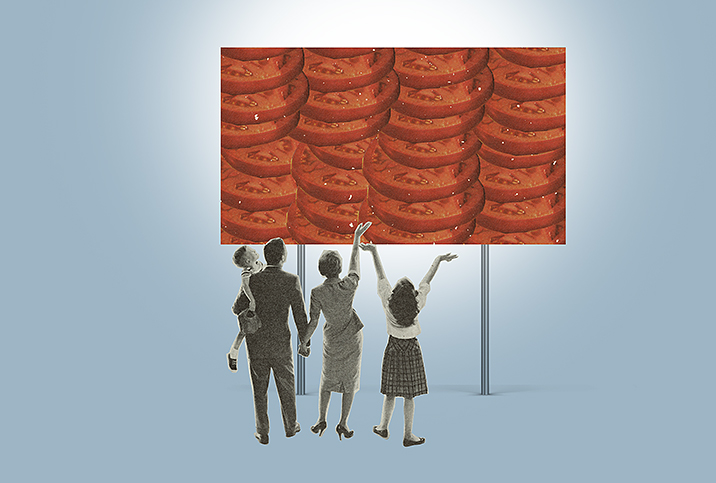Is Your Diet Making You More Depressed?

If you've ever found yourself elbow-deep in a package of Oreos, grasping for a brief respite from the throes of a deep depression, or been unable to stomach a meal for days due to overwhelming apathy and exhaustion, you know how much mood can influence food choices.
Conversely, there's evidence suggesting diet can have an equally commanding effect on your mental health, including a person's susceptibility to conditions like depression and anxiety.
How diet affects mood
Even before the COVID-19 pandemic, the United States was wrestling with a mental health crisis. According to Mental Health America, in 2017–2018, 19 percent of American adults experienced a mental illness of some kind, an increase of 1.5 million people compared to the previous year.
There have been multiple studies establishing a correlation between diet and depression. Two such studies—one published in 2014 in The American Journal of Clinical Nutrition and the other published in 2013 in the Annals of Neurology—indicated diets consisting primarily of fruits, vegetables and whole grains could reduce the risk of developing depression.
A systematic review published in 2014 in the European Journal of Nutrition, which examined the conclusions of 16 studies focused on dietary patterns, suggested people who eat a diet higher in fast foods, sweets and sugary soft drinks are more likely to be depressed.
The Western world's adoption of a largely processed-food diet has contributed massively to its current plight, according to Ellie Busby, a registered nutritionist (M.Sc., BANT) specializing in plant-based nutrigenomics and CEO at Vojo, a company based in the U.K.
"Processed foods are high in calories and low in the essential micronutrients our brains and bodies need to make the neurotransmitters and hormones that regulate our mood," Busby said.
While eating well may reduce the risk of developing depression in the first place, all is not lost for those already struggling with mental health issues.
Another study, published in 2017 in BMC Medicine, found nutritional counseling and dietary changes improved symptoms in patients with moderate-to-severe depression after 12 weeks.
Participants in the 'SMILES' trial consumed a nutrient-rich diet consisting primarily of whole foods, including fruits and vegetables, with limited processed foods, such as fried items, sweets and other junk foods. More than 32 percent of participants improved sufficiently to meet remission criteria, signaling that diet may be a pivotal component to depression management.
Depression and gut health
The gut microbiome has been at the forefront of mental health discussions in the past few years, as a growing body of evidence demonstrates the correlation between gastrointestinal health and various ailments, including depression and anxiety.
The brain and gut communicate via the enteric nervous system, sometimes called the "second brain," a network containing the same kinds of neurons and neurotransmitters found in the central nervous system. About 90 percent of serotonin, one of the primary hormones responsible for mood and mental well-being, is produced in the gut.
Sunni Patel, M.D., is a clinician-scientist and gut health specialist who lives with Crohn's disease, a form of inflammatory bowel disease (IBD). Patel said he has experienced depression, low mood and related challenges due partly to the life-altering effects of his condition, as well as racism and the stigma surrounding his ethnicity and his illness, respectively.
"Being forced to confront what I eat has been life-changing," said Patel, who added he is proof that diet can significantly impact the psyche. "Never underestimate how your gut health affects your mental health."
Of course, not everyone with depression has IBD, or vice versa. However, studies suggest those with depression and anxiety may be more prone to gastrointestinal issues, and that poor gut health is related to an increased risk of depression. Experts theorize a lack of diversity in gut bacteria may make certain people more likely to experience depression.
Inflammation can also play a role in both specific gastrointestinal challenges and mental health challenges. Patel pointed to research that indicates those with chronic conditions, including gastrointestinal ailments, are more likely to experience depression and anxiety.
"These have an impact on day-to-day activity that also leads to feeling overwhelmed, having poor self-image and feeling dependent on others, as well as low mood, depression and anxiety," Patel said.
What about genetics?

Mental health is based on the interaction of inherited genotype and external environmental factors, including diet.
"Food and nutrition are essential in the maintenance of brain performance, [and] also aid in the prevention and treatment of mental disorders," Busby explained.
Busby added genes influence a person's predisposition toward certain hereditary mental illnesses, including depression. But even without a genetic predisposition, individuals may be at increased risk of developing depression and other issues if their environment, diet and lifestyle are not conducive to mental health.
"Diet comes into the picture when we start thinking about the biochemistry of your neurotransmitters and hormones—the things that alter our mood," Busby said. "Your genes code for all the enzymes in your body that make and break down your neurotransmitters—like serotonin, dopamine, oxytocin, etc.—and these enzymes need nutrients to work, such as vitamin D, omega-3 and B vitamins."
You can't change your genes, but you can alter gene expression through diet and lifestyle changes, according to Busby. Similar to how substance use, trauma or obesity can have epigenetic intergenerational effects, you can pass along positive alterations in genetic expression to your offspring.
Best mood-boosting foods
Eating a diet low in processed and sugary foods and rich in whole, nutrient-dense foods is a great place to start.
"Twelve antidepressant nutrients relate to the prevention and treatment of depressive disorders, and those are iron, long-chain omega-3 fatty acids (EPA and DHA), folate, magnesium, potassium, selenium, thiamine, vitamin A, vitamin B6, vitamin B12, vitamin C and zinc. Ever wondered why they say sunlight is good for your mood? Vitamin D is why," Busby said. "The evidence shows people who are deficient in these nutrients are more prone to low moods, stress and sleep issues for this very reason."
Berries, citrus fruits, cruciferous vegetables, peppers and leafy green vegetables are at the top of Busby's list of dietary must-haves. A diet high in tryptophan is also essential, particularly for those susceptible to depression.
In addition to consuming tryptophan-rich foods, Busby noted, a carbohydrate-rich diet increases the bioavailability of the nutrient. "That's why when some people are depressed, they can experience an increased craving for carbs."
Patel's dietary recommendations include:
- Fermented foods, a natural source of beneficial bacteria that can improve gut health.
- Dark chocolate, a rich source of flavonoids.
- Bananas, a good source of vitamin B6, which can promote serotonin and dopamine production, and the prebiotic-fiber fructan, which in turn feeds beneficial gut bacteria.
- Whole grains, a source of iron and fiber, the latter of which can promote gut health and stable energy levels.
- Berries, anti-inflammatory and antioxidant fruits that can reduce the risk of depression symptoms.
- Beans and lentils, excellent sources of B vitamins, which can increase the levels of serotonin, dopamine, norepinephrine and gamma-aminobutyric acid (GABA).
- Seeds, good sources of tryptophan, an amino acid that aids in serotonin production and sleep regulation.
- Greens, good sources of fiber, B vitamins and iron.
"People discount the power of plants, [but] they are richly abundant in antioxidants, phytonutrients and fiber, which help support overall health and function as well providing sources of tryptophan and phenylalanine and tyrosine to support the release of dopamine, serotonin and oxytocin to help with mood stability, elation and stress response," Patel said.
The bottom line on food and mood
According to Busby, while broad research can provide general guidelines, nutritional requirements vary from person to person based on genetics, health and other factors.
Supplements are great additions, but maintaining a balanced and nutritious diet consisting of whole foods is superior for the absorption of the necessary vitamins, such as vitamin D, omega-3 and vitamin B12.
Finally, while diet does play a pivotal role, it is not a cure-all.
"We have to try and avoid the risk of creating false promises around diet being an overnight treatment," Patel said. "Diet can have a positive effect if applied well, but make the commitment and look at other factors outside of diet—stress management, hydration and exercise, for example."
For most, diet will be just one component of a multifaceted approach to depression management that works best in conjunction with other lifestyle changes along with therapy or medication. Always talk with a qualified healthcare provider before making significant dietary changes, or stopping or starting supplements or medications.


















